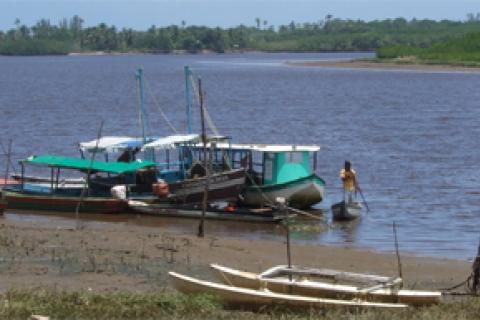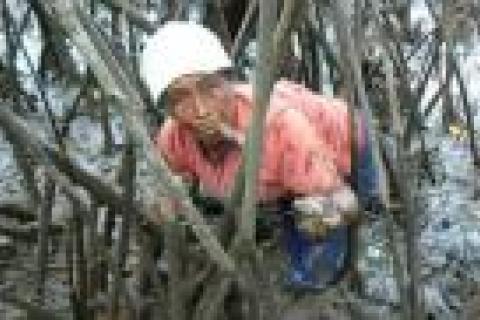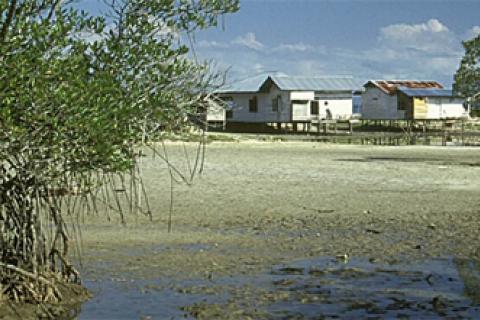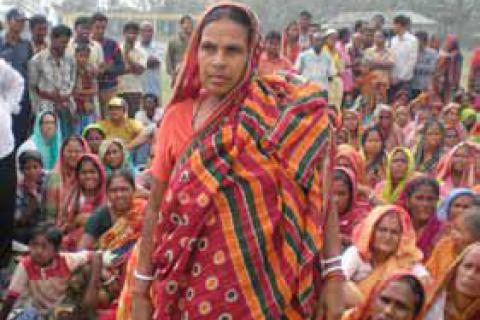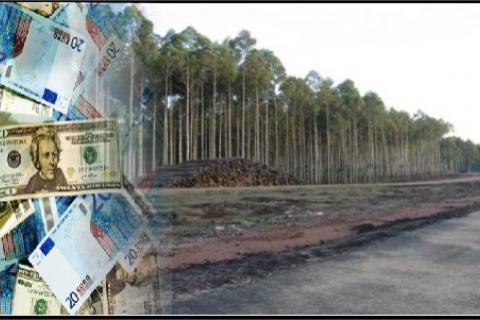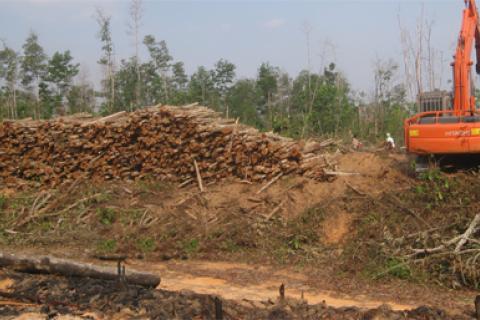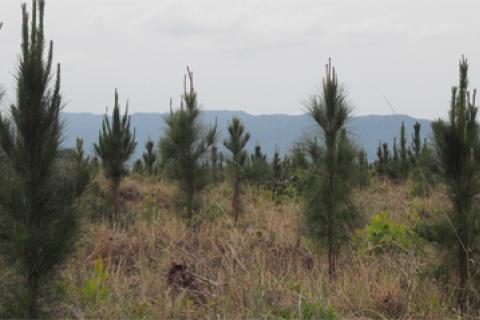The community of Isla Chicales, located in the municipality of Nueva Concepción in the department of Escuintla, is made up of 140 families who benefit directly and indirectly from fishing and other activities in the mangrove ecosystem where they live. Several years ago, when they observed signs of the degradation of the ecosystem, they undertook action and measures for its conservation, including community-based regulation of fishing and hunting, and reforestation in the degraded areas of the mangrove forest.
Bulletin articles
Brazil’s coasts are seriously threatened by a range of large-scale projects. The privatization of waterbodies, concessions over public waters for free to big consumers, and installation of fish farms are some of the activities that are endangering the mangroves and the livelihoods of local communities.
(Photo: C-Condem)
The décima is a poetic form that has been used for many years as a tool of protest by Afro-Ecuadorians, who keep this cultural traditional alive while denouncing the trampling of their rights by greedy and powerful interests like the shrimp farming industry and others that are destroying the mangroves.
The shrimp industry has boomed over the last 20 years as the result of production on large industrial shrimp farms, which have devastating impacts on mangroves as well as causing countless human rights violations against the people who live in and depend on these ecosystems.
According to The World's Mangroves 1980-2005 (FAO 2007), Indonesia has the largest mangrove area in the world in terms of the extent of the region. However, the condition of mangroves has declined both in quality and quantity from year to year. In 1982, Indonesia's mangrove forests covered an area of 4,25 million ha, while in 2009 it was estimated to be less than 1,9 million ha (KIARA, 2010).
(Photo: SSNC)
The negative patterns of land grabbing and intimidation recorded by a Swedish Society for Nature Conservation (SSNC) investigating team in shrimp farming areas around Khulna, Bangladesh clearly affect entire families whose lands and livelihoods have been destroyed.
The land grabbing effect of conservation projects is rarely considered in the current discussion of global ‘land grabbing’. In Tanzania, where around 40 % of the land area of the country is under some form of environmental protection, conservation areas have steadily increased since colonial times, leading to loss of land and access for small‐scale farmers, pastoralists and fisherfolk.
The news reports out of Europe and the United States describe situations of severe financial-economic crises, with little or no economic growth, a lack of investment and high unemployment. Yet since this crisis began roughly five years ago we have also seen intensive and increasingly greater investment in land and industrial plantations of trees and other crops in Latin America, Africa and Asia, through a variety of investment funds, most of them based in the crisis-stricken industrialized countries of the global North.
The expansion of large-scale monoculture tree plantations in the global South dates back to the 20th century, becoming particularly marked in the 1960s, and is expected to continue at an ever increasing rate in the 21st century alongside the growing globalization of the economy and markets.
The emergence of “Paper Dragons”. (Available in Indonesian).
It was recently reported that the pulp and paper consortium Montes del Plata, a joint venture between Swedish-Finnish forestry giant Stora Enso and the Chilean corporation Arauco, has sold 45,000 hectares of land in the departments of Tacuarembó and Rivera, most of it covered by tree plantations, to the U.S. investment management firm GMO. (1)

